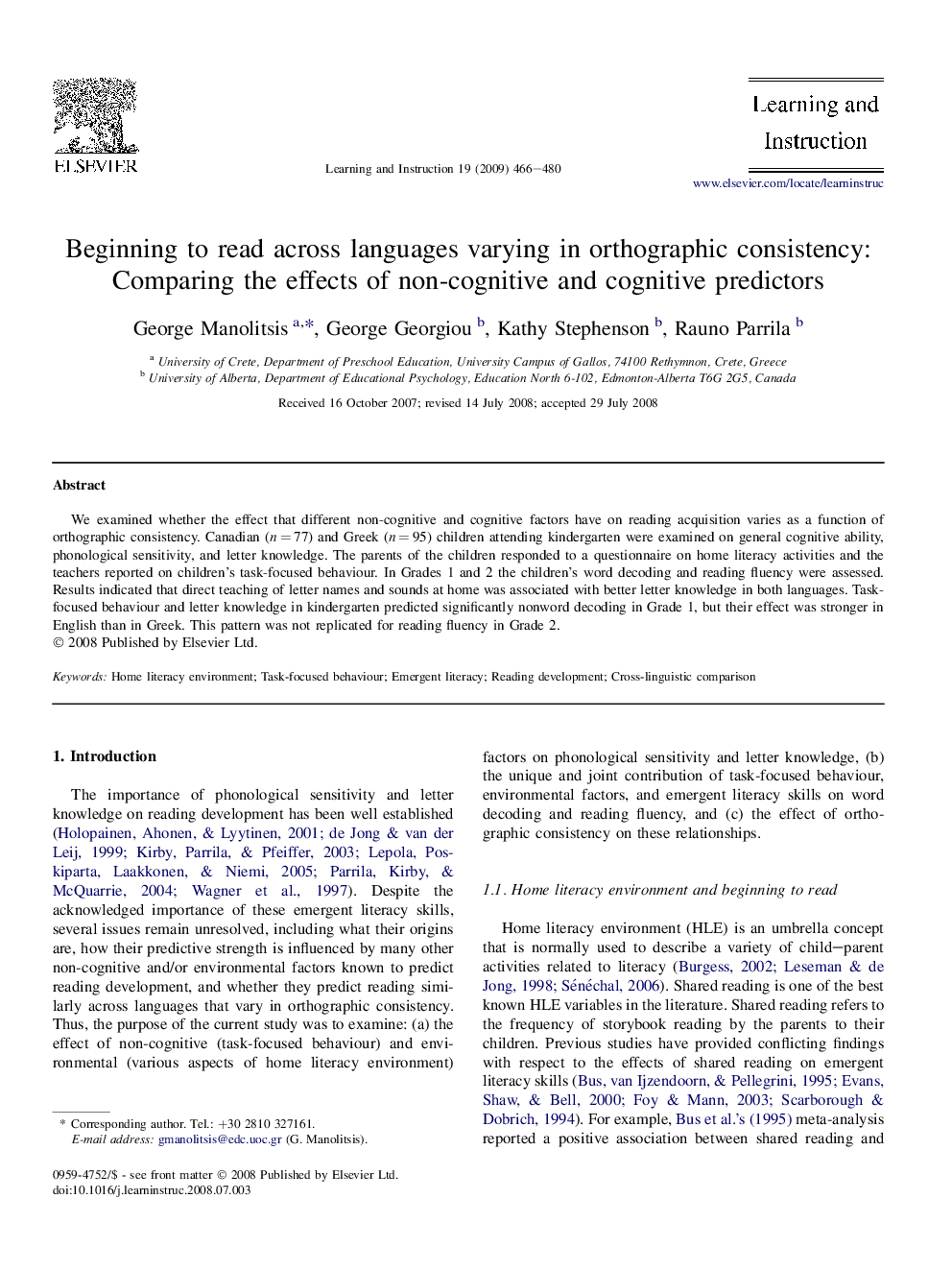| Article ID | Journal | Published Year | Pages | File Type |
|---|---|---|---|---|
| 365876 | Learning and Instruction | 2009 | 15 Pages |
We examined whether the effect that different non-cognitive and cognitive factors have on reading acquisition varies as a function of orthographic consistency. Canadian (n = 77) and Greek (n = 95) children attending kindergarten were examined on general cognitive ability, phonological sensitivity, and letter knowledge. The parents of the children responded to a questionnaire on home literacy activities and the teachers reported on children's task-focused behaviour. In Grades 1 and 2 the children's word decoding and reading fluency were assessed. Results indicated that direct teaching of letter names and sounds at home was associated with better letter knowledge in both languages. Task-focused behaviour and letter knowledge in kindergarten predicted significantly nonword decoding in Grade 1, but their effect was stronger in English than in Greek. This pattern was not replicated for reading fluency in Grade 2.
